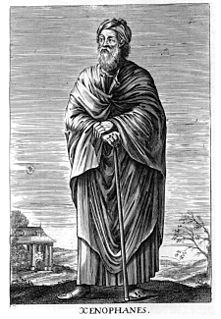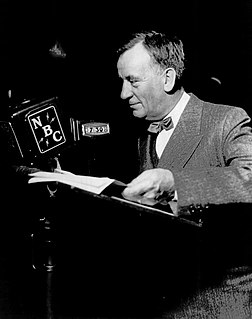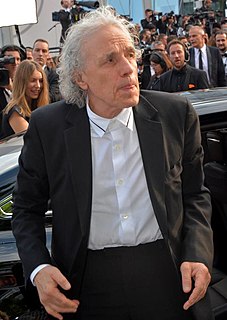A Quote by Xenophanes
Homer and Hesiod attributed to the gods all things which are disreputable and worthy of blame when done by men; and they told of them many lawless deeds, stealing, adultery, and deception of each other.
Related Quotes
Many things they sawe with us as mathematicall instruments, sea compasses... spring clocks that seemed to goe of themselves - and many other things we had - were so strange unto them, and so farre exceeded their capacities to comprehend the reason and meanes how they should be made and done, that they thought they were rather the workes of gods then men.
For, when men shall meet as they ought, each a benefactor, a shower of stars, clothed with thoughts, with deeds, with accomplishments, it should be the festival of nature which all things announce. Of such friendship, love in the sexes is the first symbol, as all other things are symbols of love. Those relations to the best men, which, at one time, we reckoned the romances of youth, become, in the progress of character, the most solid enjoyment.
We who go a-fishing are a peculiar people. Like other men and women in many respects, we are like one another, and like no others, in other respects. We understand each other's thoughts by an intuition of which we know nothing. We cast our flies on many waters, where memories and fancies and facts rise, and we take them and show them to each other, and small or large, we are content with our catch.
William Shakespeare was the most remarkable storyteller that the world has ever known. Homer told of adventure and men at war, Sophocles and Tolstoy told of tragedies and of people in trouble. Terence and Mark Twain told cosmic stories, Dickens told melodramatic ones, Plutarch told histories and Hans Christian Andersen told fairy tales. But Shakespeare told every kind of story – comedy, tragedy, history, melodrama, adventure, love stories and fairy tales – and each of them so well that they have become immortal. In all the world of storytelling he has become the greatest name.
Men create their own gods and thus have some slight understanding that they are self-fabricated. Women are much more susceptible, because they are completely oppressed by men; they take men at their word and believe in the gods that men have made up. The situation of women, their culture, makes them kneel more often before the gods that have been created by men than men themselves do, who know what they've done. To this extent, women will be more fanatical, whether it is for fascism or for totalitarianism.
It's always a problem when you're working with people you don't really know. Most filmmaking is about shaking hands and just starting. You know, these month - or two-month-long endeavors that millions of dollars are based on, and the people doing them don't even know each other, or know each other under pressure, or know each other when things are really... Which filmmaking is completely done under in many circumstances. You're under constant crisis, making a movie.
Do you not think that there are things which you cannot understand, and yet which are; that some people see things that others cannot? But there are things old and new which must not be contemplate by men´s eyes, because they know -or think they know- some things which other men have told them. Ah, it is the fault of our science that it wants to explain all; and if it explain not, then it says there is nothing to explain.
Nothing feebler than a man does the earth raise up, of all the things which breathe and move on the earth, for he believes that he will never suffer evil in the future, as long as the gods give him success and he flourishes in his strength; but when the blessed gods bring sorrows too to pass, even these he bears, against his will, with steadfast spirit, for the thoughts of earthly men are like the day which the father of gods and men brings upon them.
When men hate or blame you, or say hurtful things about you, look deeply into their hearts and see what kind of men they are. You'll see how unnecessary it is to strain after their good opinion. Yet you must still think kindly of them. they are your neighbors. The gods help them as they do you, by dreams and oracles, to win their hearts' desires.
When people see some things as beautiful, other things become ugly. When people see some things as good, other things become bad. Being and non-being create each other. Difficult and easy support each other. Long and short define each other. High and low depend on each other. Before and after follow each other. Therefore the Master acts without doing anything and teaches without saying anything. Things arise and she lets them come; things disappear and she lets them go. She has but doesn't possess, acts but doesn't expect. When her work is done, she forgets it. That is why it lasts forever.
Much have I traveled in the realms of gold, And many goodly states and kingdoms seen; Round many western islands have I been Which bards in fealty to Apollo hold. Oft of one wide expanse had I been told That deep-brow'd Homer ruled as his demesne, Yet did I never breathe its pure serene Till I heard Chapman speak out loud and bold: Then felt I like some watcher of the skies When a new planet swims into his ken; Or like stout Cortez when with eagle eyes He stared at the Pacific, and all his men Look'd at each other with a wild surmise, Silent, upon a peak in Darien.







































